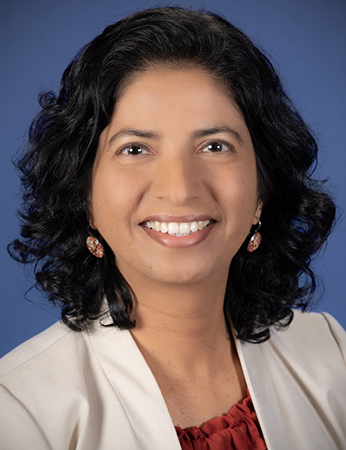Shaikh will lead American Academy of Pediatrics project on adolescent substance use and mental health
UC Davis pediatrician appointed to national post for quality improvement
Ulfat Shaikh, professor of pediatrics and medical director of health care quality at UC Davis Health, has been appointed project leader for the American Academy of Pediatrics' national primary care quality improvement collaborative. Shaikh will focus on how primary care clinics can prevent and treat substance use and improve mental health in adolescents.

The national project, funded by a grant from the Elevance Health Foundation, will begin this month and will run through March 2025.
Shaikh, a steadfast advocate for improving the quality of care for children in outpatient and inpatient settings, is thrilled to share her expertise on a national level.
“The tough times of the COVID-19 pandemic worsened mental health and substance use issues in adolescents. Primary care clinics all over the country struggled to meet this rapidly escalating crisis and alleviate the suffering of our patients and their families,” Shaikh said. “The young people we take care of are still dealing with the aftermath of these circumstances.”
In her new role, Shaikh will:
- Work with a team at the American Academy of Pediatrics Pediatric Primary Care Quality Network to build practice change capacity for 30 primary care practices across the country.
- Provide guidance and clinical expertise to the project team for the overall design of this effort, including its goals, interventions, curriculum, measurement plan and data collection tools.
- Analyze the effectiveness of the quality improvement collaborative
“This project aligns with my strengths of implementing robust quality improvement methods to improve health care delivery,” Shaikh said. “I see this opportunity as a way to help primary care practices screen for and manage mental health and substance use issues using strategies that effectively engage multidisciplinary teams and community partners and do not add to the burden of already busy clinicians.”



